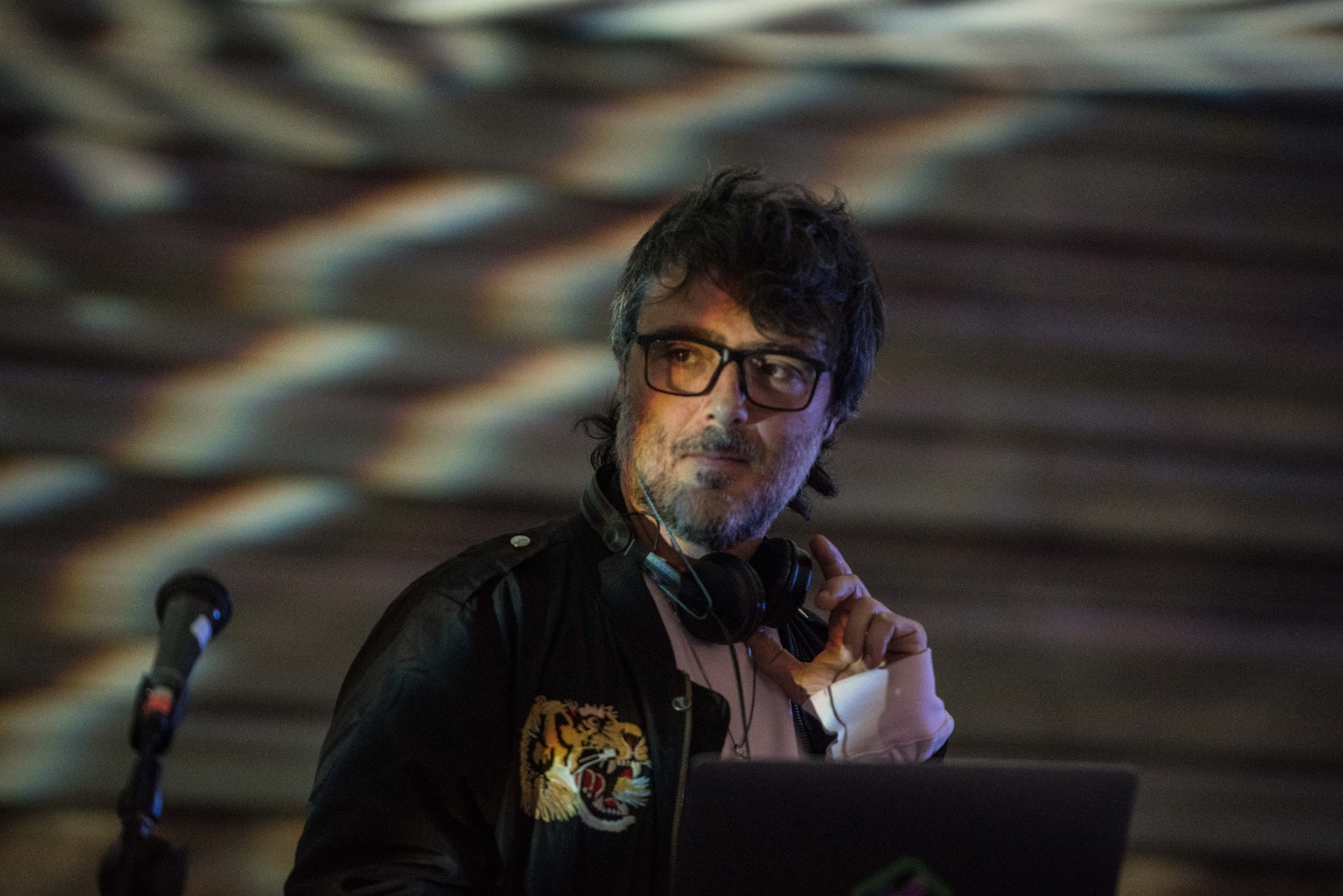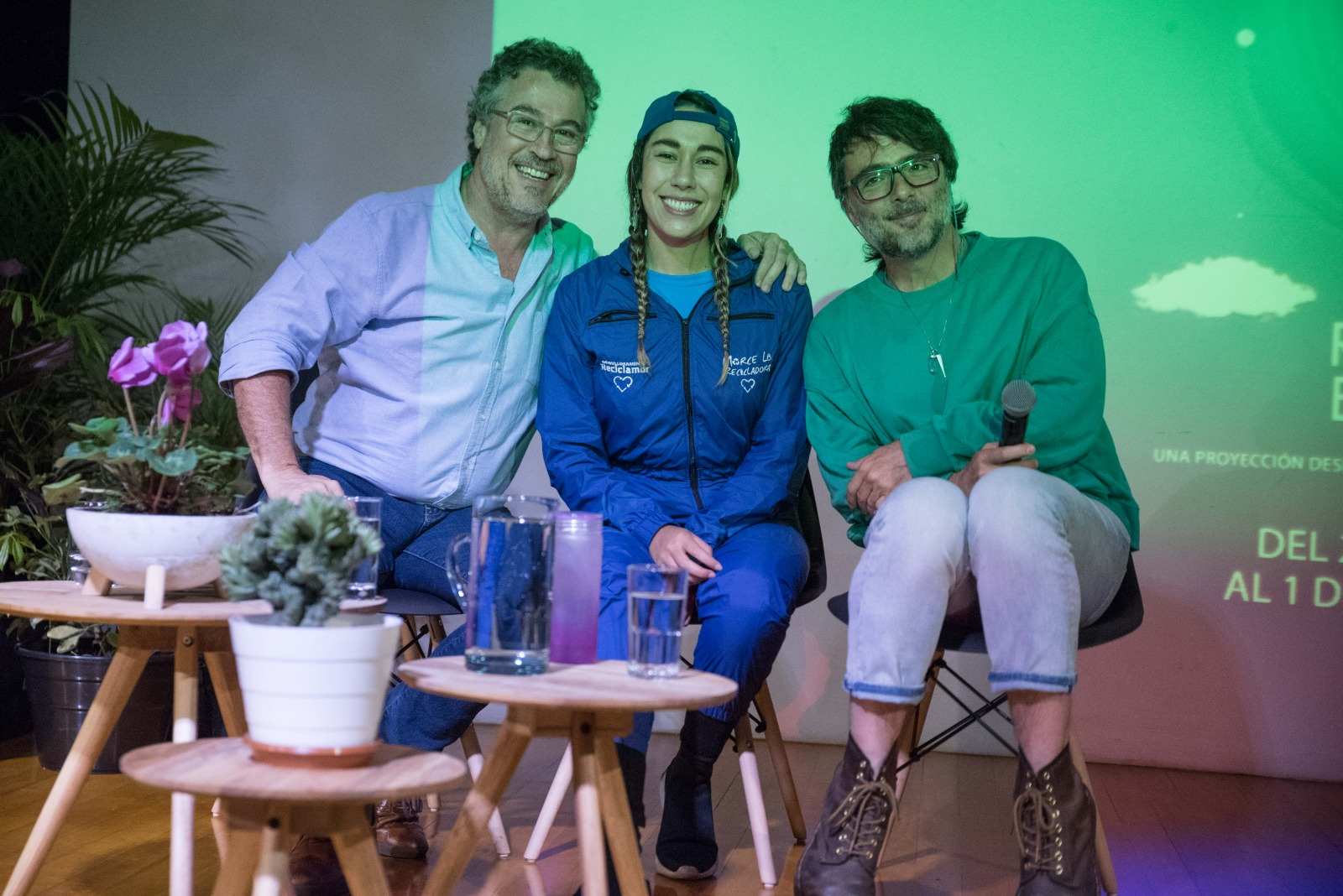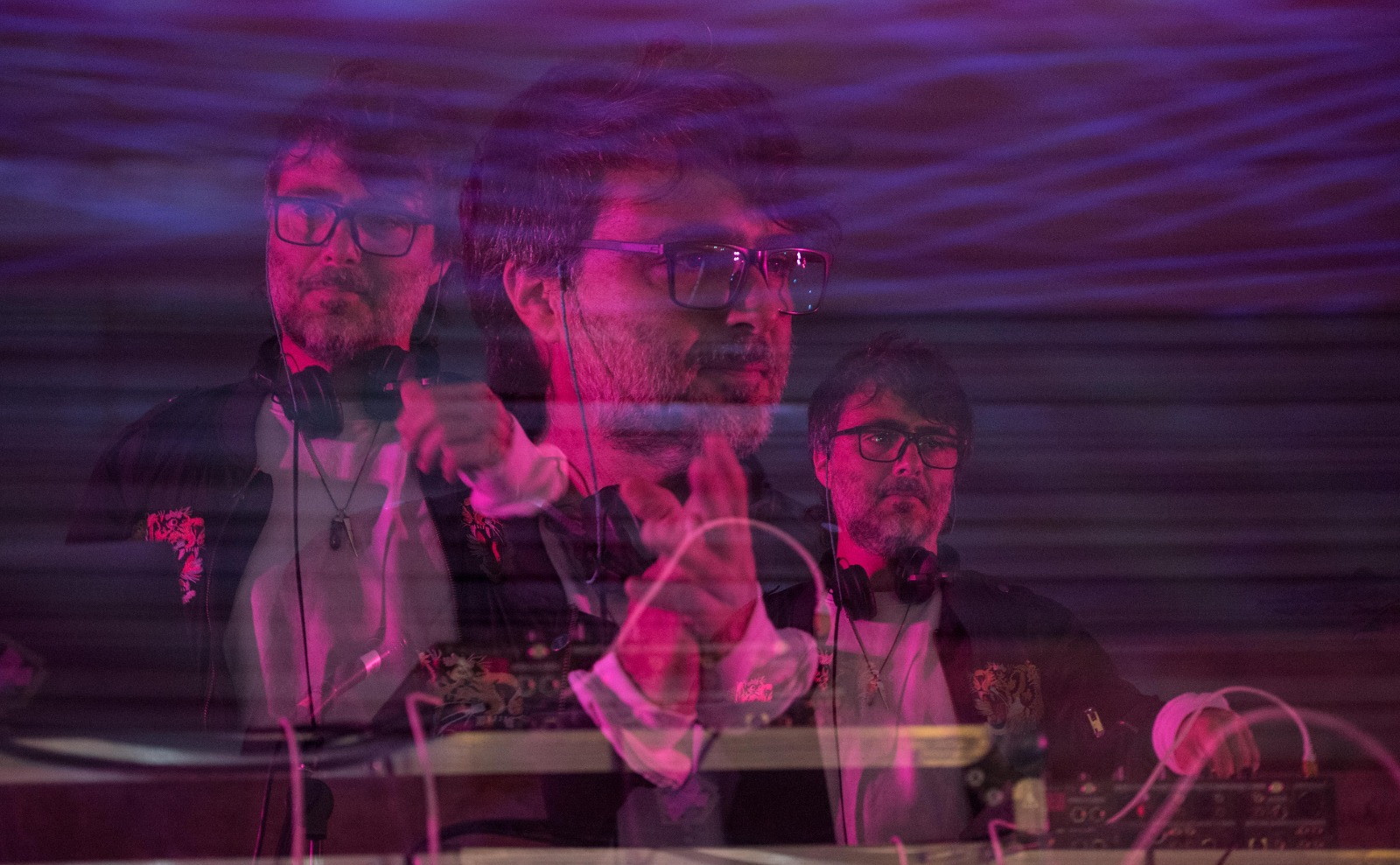
Bogota Colombia. November 10, 2023.- The Bogotá Planetarium, located in the epicenter of the city, was the setting for the IV Forum "Breathe Art", an event that merged art with the prevailing need to address the climate crisis, a project of the District Institute of the Arts (Idartes ).
For five intense days, actors from the artistic and cultural sector reflected on the environmental implications of artistic practices. This fourth edition of the forum focused on projecting possible futures of artistic practice within the framework of environmental sustainability.
On the first day, there was a unique conversation between Simón Mejía, the influencer Marce La Recicladora and the moderator Jorge Melguizo at the table "Voices of art for environmental sustainability." At the end, we were able to conduct an exclusive interview with Mejía, where we immersed ourselves in his fascinating world as the musical genius behind the innovative Colombian band, Bomba Estéreo.
The conversation was revealing, as he shared his unique vision about the struggle of indigenous and Afro-descendant people in Colombia; From the autonomy granted by the 1992 Constitution, to current challenges, Mejía highlighted the ancestral harmony of indigenous communities with nature and advocated for a balance between ways of life.

***

Alejandro Melendez: In the work you are doing and, above all, in the documentaries that you told us about (Guardianas and Yuma), what is the struggle of indigenous and Afro-descendant residents in these areas like and how have you seen it?
Simon Mejia: Yes, well here in Colombia, fortunately, since the Constitution was changed in 1992, minority communities were given a lot of governance autonomy, mainly Afro and indigenous communities, which were already organized. But let's say that, from the government, they were given a space to have their own governance, because in the end they, especially the indigenous communities, not because we are in a context of climate change and in a fashion about climate change, but that is what they have been doing for centuries. The indigenous people coexist with nature in a harmonious way, so they really have a lot to teach us white culture within their ancestry.
In terms of governance, although it is not easy, especially because in Colombia there are many conflicts, among them drug trafficking that directly attacks these communities, let's say that yes, there is a very great advance at the level of laws and at the level of their spaces so that they can protect the territories where they have lived for centuries before us, but it is not easy because the government, the governments of the world, work under another system.
Before, the two systems may clash a little, but I feel that the way is to find a point, a bridge between the two, between both ways of life: we learn from them and they join the world and the devastating economic system in the world. we live, find a balance in which the main affected by this is not the earth. From this imbalance that we experience in this system, then they are the ones we have to learn from. But, here in Colombia, in the particular case of these communities, their work is at risk all the time because precisely they face those economic interests and many times crime, especially the drug trafficking that occurs in those places. So, it is not an easy task, it is a task where they put their lives in danger.
A.M: How to convince governments to change governmental forms? Because we are seeing that those who really govern are the transnational companies that are all over the world.
In Mexico, most of the areas where land defenders and journalists are murdered the most are linked to a transnational company. We have a colleague, Samir Flores, who was a defender of the land as well as a communicator, and was murdered for fighting against a thermoelectric plant financed by Spanish transnationals.
So, how to start creating this awareness in governments so that they understand that transnational companies have to be regulated? There is the example of YouTube, which claims to be a free place, but in reality it is not, it also restricts many things, especially when there are social struggles. How to make this transition so that the government is aware of the role that these transnational companies play?
YE: The thing is that transnationals depend directly on the economic model and consumption in which we live. The only way to regulate this, beyond the government, is for us, as a civil society, to regulate ourselves and veto the consumption of products that we know have practices behind them that are not friendly to the planet or generate violence.
So, as a civil society, we can put an end to a transnational company. If the world or an entire community or an entire city decides that it is not going to consume more of that product because we know where it comes from, it affects them directly, because it affects their pocketbooks.
We are also part of the problem, because we consume the goods that these companies offer. So, it is in our hands as civil society, beyond governments, because many times these are linked to the lobby and the money of those same companies that move in the lobbies to generate laws and policies that allow their extractivism. But we, as consumers and as a capitalist consumer society, can set a limit, begin to model and make more conscious consumption.
To the extent that they see that they no longer have that mass force that they control through consumption, that is when they will realize that they have no more weapons.
A.M: You mentioned Leonor Zalabata Torres, current representative of Colombia to the UN, and that the Arawak community of the Sierra Nevada de Santa Marta designated her, in addition to Petro, to go to New York, where you hope that a space of awareness will be forged about indigenism.
How to implement and achieve it? Because, I'll give you an example: in Mexico, one of the people who has an exemplary job as a public official, was a Nahuatl musician and poet, Mardonio Carballo, and he was finally removed from the Ministry of Culture, just because they couldn't stand that an indigenous had more weight than the current incumbent. So, how to break this part of the capital cities so that, above all, more indigenous people come to take these positions and change this very Western worldview of public policies?
YE: It has to do with a change of consciousness. That is also linked to the history of racism that we live here in Latin America since the Colony, because here in Latin America we who are white, or I, am white and I am also the son of that miscegenation of the Colony.
The Colony left Latin America as a legacy the idea of destroying and overriding these cultures, an issue of racism and religion that has fed us for many centuries. We must break that and finally see the indigenous people, not as such, but as people who also inhabit the planet and have their own problems and conflicts, but have also known how to lead a life more harmonious with the planet, something that we as a white culture we have not achieved.
As long as we do not change that awareness rooted in our DNA of racism and rejection of minorities, and we do not respect differences and listen to the valuable traditions of others, we will continue with systematic racism, misogyny and all those cultural anchors that we carry.
It is a process that starts from each individual, assuming oneself not as white, black, man, Afro, indigenous, but as an inhabitant of the earth, where we all have the same value.
There are cultures that have a lot to teach us about harmony with the planet, while we also have valuable things, such as technology based on the environment and administrative technique. It is a one-on-one job, a joint work between different cultures to achieve the same goal, more horizontal movements. We, in Latin America, who come from colonialism, still have that legacy rooted in our psyche, and breaking with that means breaking with centuries of teachings. So, we are walking through that process.
A.M: Finally, tell us when these documentaries you have will be available. What are they going to be called and also if you prepared a soundtrack for these and if you did the music? Tell us about that musical part within the documentaries.
YE: Of course, they all have a very important soundtrack theme that we hope also serves as a dissemination tool for people to see the film or connect, because here in Colombia it is a very musical country. I have tried to ensure that, through music, and especially that which has inspired us, it inspires us.
Bomba Estéreo is a band that comes from the indigenous and Afro world, since their music has roots in the folk music of Colombia and Latin America. So, of course, now we have a soundtrack that I made and next year both documentaries will be released. The one on the Magdalena River is called “Yuma”, and the one for the leaders has a partial name, which will probably change, which is “Guardianas”. Both will premiere in 2024.
To see the Yuma trailer and support Simón Mejía's documentary, click the following link: https://www.kickstarter.com/projects/yumariosonoro/yuma-sonic-river-yuma-rio-sonoro/description?lang=es.
You may be interested in: The Day of the Dead Festival was experienced in Redwood City with music, dance and color


